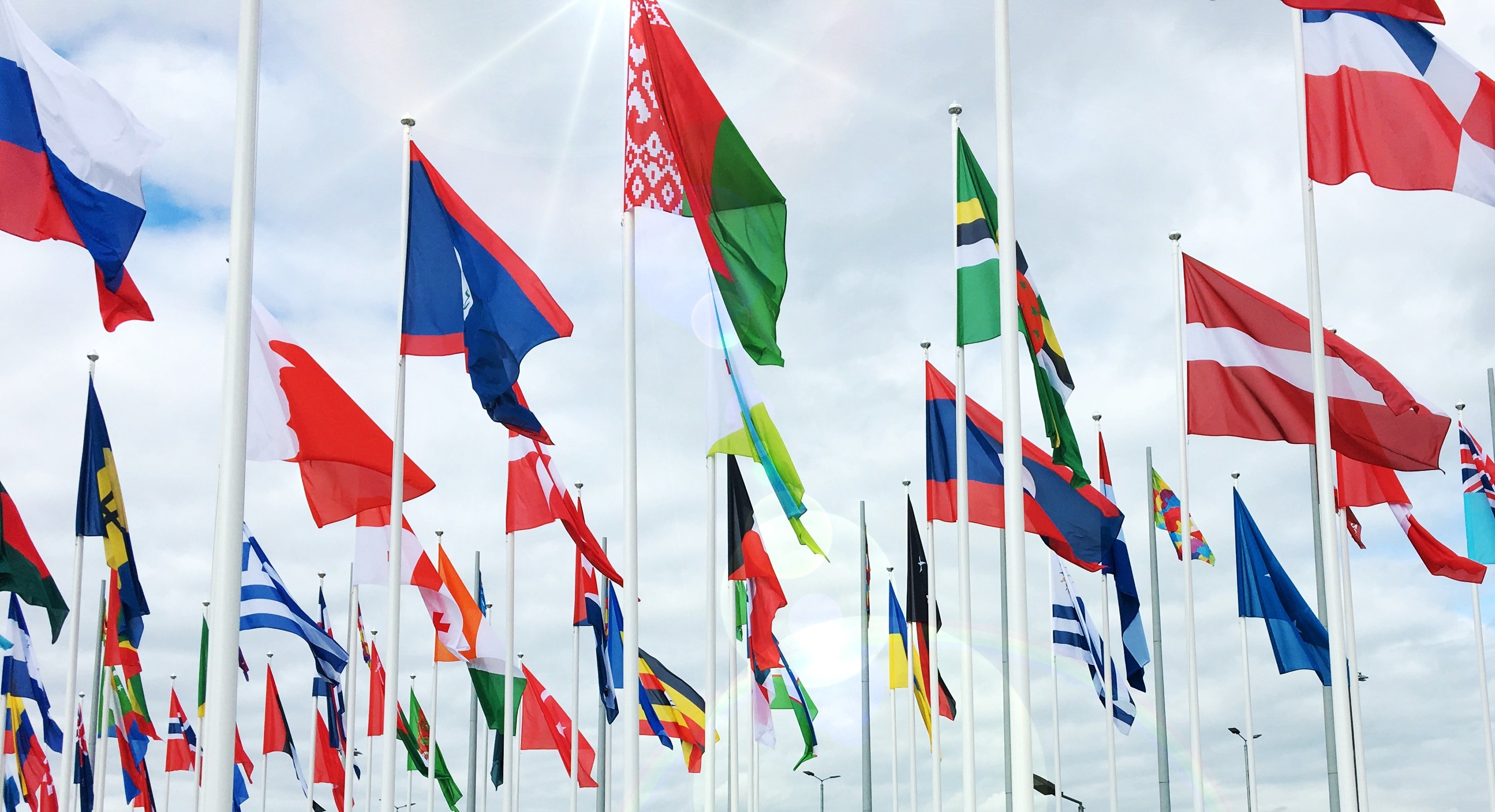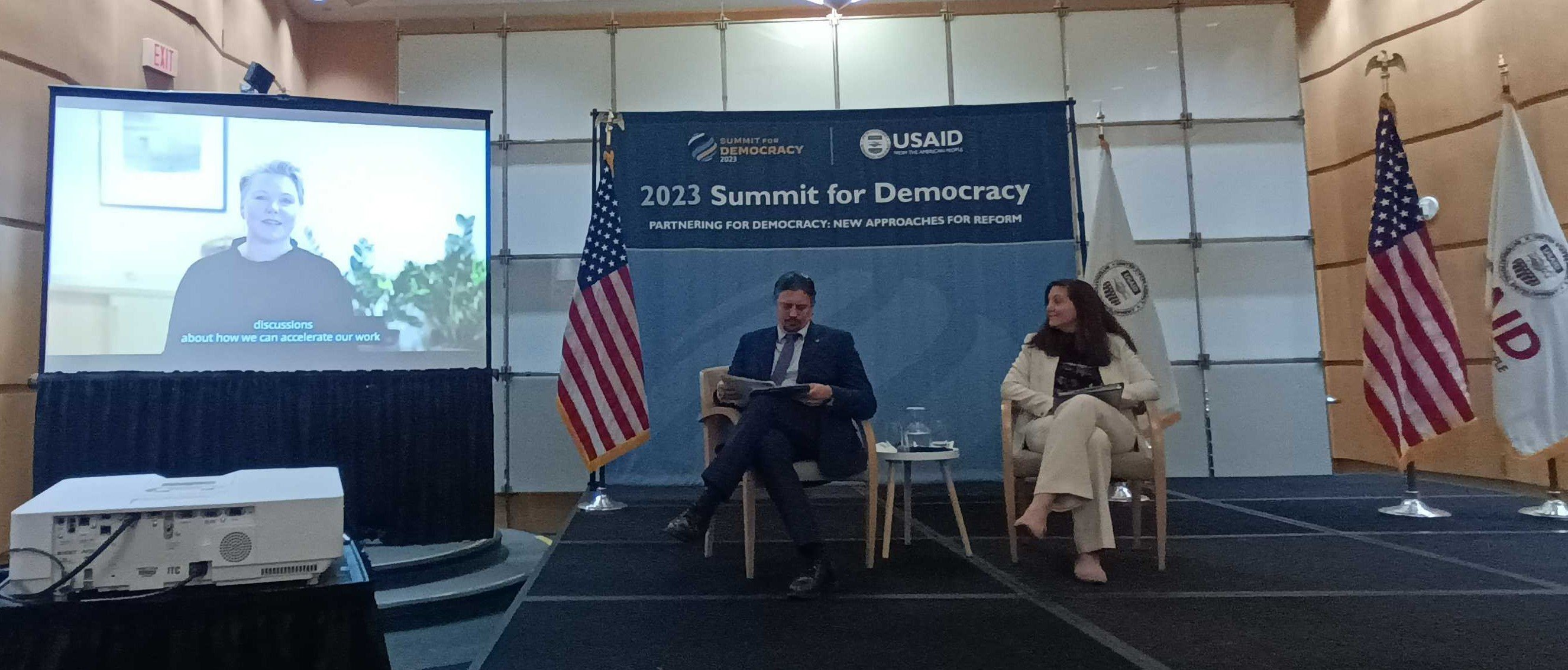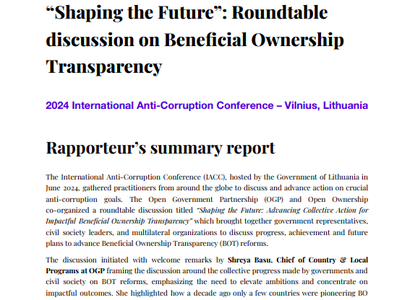Summit for Democracy: where next on beneficial ownership transparency?

Photo by Vladislav Klapin on Unsplash
Beneficial ownership transparency was a prominent theme throughout the Summit for Democracy, and has been a key focus of discussions within the Financial Transparency and Integrity Cohort (FTI Cohort) established following the 2021 Summit, of which Open Ownership is a member.
Throughout the high level events taking place this March for the 2nd Summit for Democracy, there is a common thread: beneficial ownership transparency is recognised as a critical anti-corruption tool, this transparency plays an integral role in promoting financial integrity and strengthens democracy.
The United States together with over 20 other nations announced a high level Commitment on Beneficial Ownership and Misuse of Legal Persons, reaffirming the importance of beneficial ownership transparency to tackling transnational corruption. This centres on a commitment to “effectively implement” the international Financial Action Task Force (FATF) standard on beneficial ownership of legal entities.
The word effective is important here. This focus is well aligned to discussions within the Summit’s FTI Cohort, which highlighted the importance of not just collecting beneficial ownership information in central registers, but also ensuring that the actors who need to use the data to tackle corruption, can actually do so in practice. Making sure that reforms result in accurate, usable data that do prevent and detect corruption, is at the core of Open Ownership’s work, and we look forward to continuing to share our policy and technology expertise within the FTI Cohort and beyond.
The governments that signed the high-level commitment on beneficial ownership, including those represented within the FTI Cohort, are taking varying approaches and have levels of ambition to their own beneficial ownership reforms. For some, compliance with international anti-money laundering standards is the central goal - and this is an important and impactful goal - whereas for others, their ambition goes beyond these current standards.

Minister Anne Beathe Tvinnereim, Norway’s Minister of International Development at USAID's Partnering for Democracy event
At USAID’s Partnering for Democracy event, Minister Anne Beathe Tvinnereim, Norway’s Minister of International Development and Minister of Nordic Cooperation, urged countries to continue the momentum generated by the Summit, describing the high-level commitments and FTI Cohort pledge “as a floor for our ambitions in this field, not as a ceiling”. This echoes discussions within the FTI Cohort, for example on the value of expanding access to beneficial ownership information beyond law enforcement and other competent authorities as required by the FATF standards.
During the FTI Cohort discussion, members shared how civil society organisations and investigative journalists have used beneficial ownership data where they have access to it, to reveal suspected acts of corruption, conflicts of interest and fraud. The examples shared clearly illustrate the value of beneficial ownership information not just to recovering the proceeds of corruption, but more broadly to preventing corruption and increasing trust in the financial system.
The high-level Summit commitment and Cohort pledge on beneficial ownership are a significant foundation to build on, and from the discussions within the FTI Cohort it is clear that government and civil society members are united in wanting to see these commitments translate effectively into action.
The focus on using beneficial ownership to deliver anti-corruption impact (rather than simply collecting the information for compliance purposes), builds on a growing recognition in international standards of its role in recovering stolen assets. The 2021 Conference of States Parties to the UN Convention Against Corruption (UNCAC) included a resolution on enhancing the use of beneficial ownership information, and when the FATF published its revisions to Recommendation 24 on beneficial ownership of companies in 2022, there was a strong emphasis on effectively implementing the standards, in recognition that this is key to ensuring use of the data.

At the 2nd Summit for Democracy, Indo-Pacific Regional Meeting in Korea this week, the CEO of the Open Government Partnership, Sanjay Pradhan, highlighted the need to bridge the gap between commitments to reform and delivering impact, urging governments to ground high-level commitments in concrete action and citing beneficial ownership transparency as a mechanism to deliver tangible benefits.
Coinciding with the Summit for Democracy events, significant developments in the EU have underscored the importance of beneficial ownership information to international defences against money laundering. The European Parliament announced a range of draft proposals in its Sixth Anti-Money Laundering Directive which sets out a clear plan to enable civil society, journalists and academics to meaningfully access beneficial ownership information under their legitimate interest for the purposes of anti-money laundering.
Nationally in the US, momentum to implement beneficial ownership reforms also continues, with Secretary Janet Yellen underscoring the importance of the country’s reform efforts at a US Treasury event on the topic, stating that “unmasking shell corporations is the single most significant thing we can do to make our financial system inhospitable to corrupt actors”.
These words underscore the essential role that financial centres such as the US have in leveraging the power of beneficial ownership transparency to fight transnational corruption. Surely the turning point for realising impact globally is when international financial centres take concerted action alongside the efforts of countries that are already forging ambitious pathways to transparency.
There are strong signals that this moment is here. The direction of travel is clear: countries around the world are taking action to deliver greater transparency over who owns and controls companies in their jurisdictions. They are doing so because of the international consensus that beneficial ownership transparency is necessary to combat money laundering, but also due to the growing acknowledgement that transparency has a key role to play in deterring and preventing corruption more broadly.
The exploitation of financial secrecy for corrupt purposes is a global issue. There is a growing wealth of experience among governments, civil society actors and businesses on how to effectively implement beneficial ownership reforms, and a clear task ahead: to deliver on the commitments that Summit for Democracy has reaffirmed, and ensure that beneficial ownership transparency is implemented effectively so that this information is fully leveraged in the fight against transnational corruption.
Looking ahead, in December 2023 the US will host the 10th Conference of States Parties to the UNCAC. This is an important opportunity to leverage the momentum that the Summit for Democracy has generated, and take action to raise the bar of global standards on beneficial ownership transparency as a critical tool for preventing corruption, as well as for fighting money laundering and recovering stolen assets. Governments, civil society and businesses all have a key role to play in converting commitments into action.
Related articles and publications
Publication type
Blog post


